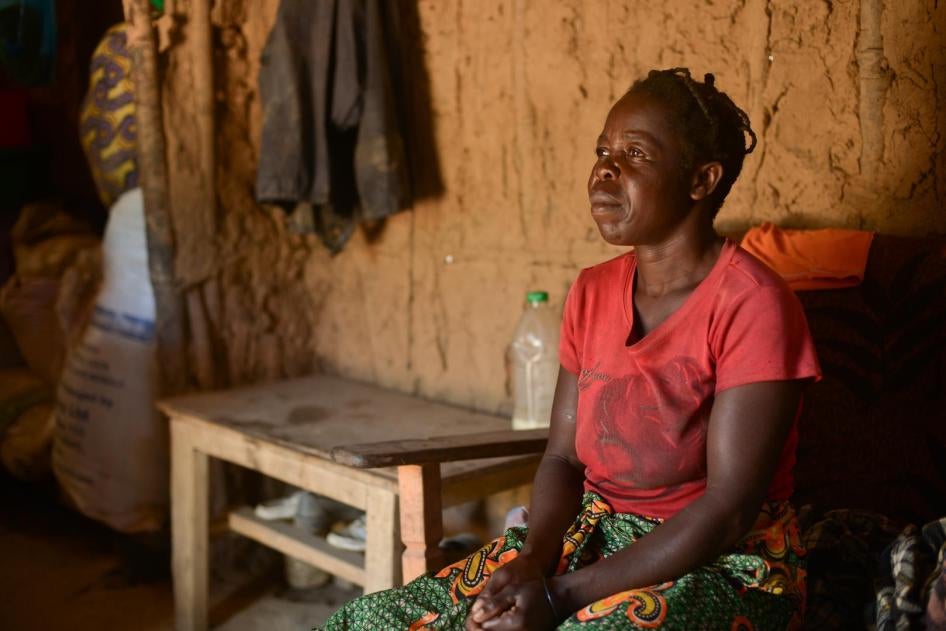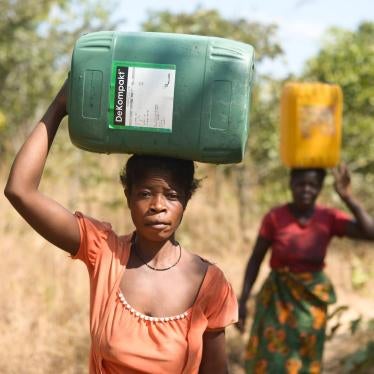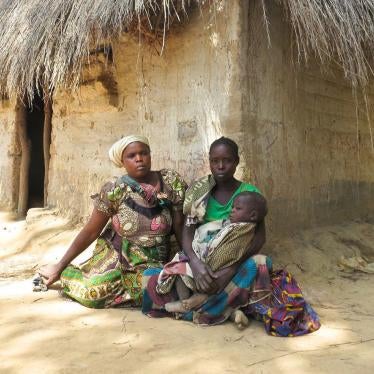As activists and policymakers from across the globe gather in Washington D.C. for the World Bank Conference on Land and Poverty, it’s a good time to reflect on how commercial agriculture leaves peasants landless in Zambia.
Esther M. (not her real name), a 50-year old mother of nine, is among them. In 2016 commercial farmers displaced her from land where she had lived for more than three decades. She told Human Rights Watch researchers last year that the commercial farmer gave her no compensation and left her homeless. She feared having to move again if another commercial farmer leased the land she had relocated to. She doesn’t have the money to take her case to court or any administrative body for redress.
Esther M. was among the people interviewed for a 2017 Human Rights Watch report on how commercial farming has destroyed the livelihoods of rural smallholder farmers in Serenje district of Central Zambia. Commercial farmers in the region had displaced residents– and even forcibly evicted some—from land they had lived on for decades. For the most part, there was no meaningful consultation with the community before the commercial farmers moved in and if they paid any compensation, it was a pittance at best. Women and their families who had farmed the land were left in dire straits without their only source of livelihood.
Many of the rural people displaced by commercial farming in Zambia have deep ties to their homes and land and a legitimate expectation of secure tenure rights. Many families have lived on and used the land for generations under customary tenure – which is recognized by law. Customary land rights are generally not formally registered, though residents may have documentation from their chief that reflects their occupancy and use.
“Where will we go? This is where I was born, my parents were born here and died here,” Melanie K., who was facing displacement, told Human Rights Watch. “I have ten children and my sister has six. Where do I take them if they remove me from this farm?”
Poor government planning exacerbates the problem. The government has designated huge tracts of land in some chiefdoms in Serenje district for commercial farming, leaving little land available to relocate displaced residents. In the Muchinda chiefdom, for example, where land is generally owned and controlled by women under the Lala inheritance customs, more than four farm blocks measuring more than 200,000 hectares have been designated for commercial farming. Some residents have been displaced multiple times when commercial farming operations move in or expand.
The UN special rapporteur on the right to food took notice of what is happening. In a report to the UN Human Rights Council in Geneva on her 2017 visit to Zambia she said: “The Government’s policy of turning export-oriented large-scale commercial agriculture into the driving engine of [Zambia’s] national economy, in a situation where land protection is weak, runs the risk of pushing peasants off their land, which in turn could push them out of production, with a severe impact on their right to food.”
The World Bank conference echoes the Bank’s broader goals – ending extreme poverty and promoting prosperity, but is centered around land governance. Zambia’s government has not been able to reduce poverty and instigate prosperity for people in rural communities. According to one 2017 World Bank document, “coverage of programs targeted to help the poor and vulnerable [in Zambia] remain small relative to the need, as well as compared to regional and international standards.”
Government officials have acknowledged some “administrative setbacks” in monitoring commercial farming operations and protecting the rights of rural residents. They have taken some measures to remedy the situation. In 2017, the lands commissioner, Mr. Kopa Muma, directed provincial officials to ensure that they take sufficient care in allocating land to avoid harming residents. He required provincial officials to report cases in which residents are displaced to his office.
This is a small first step. But the government can do more. It should pay heed to women like Esther M. who implored: “We need help from the government to … find a place where we can raise our children.” The government should do much more to protect rural people’s rights and hold commercial farmers accountable. Zambian authorities and commercial farmers should follow international and national standards in developing plans for and carrying out resettlement and compensation that respect the rights of displaced families.
Commercial farmers should respect the rights and freedoms of communities still living on land allocated to them, including the residents’ right to consult independent counsel.
Commercial farmers should immediately and transparently take adequate measures to assist the residents they have already displaced without following international and national standards.
Companies should not profit by trampling the rights of poor peasants and leaving them impoverished and landless. It needs to stop.








